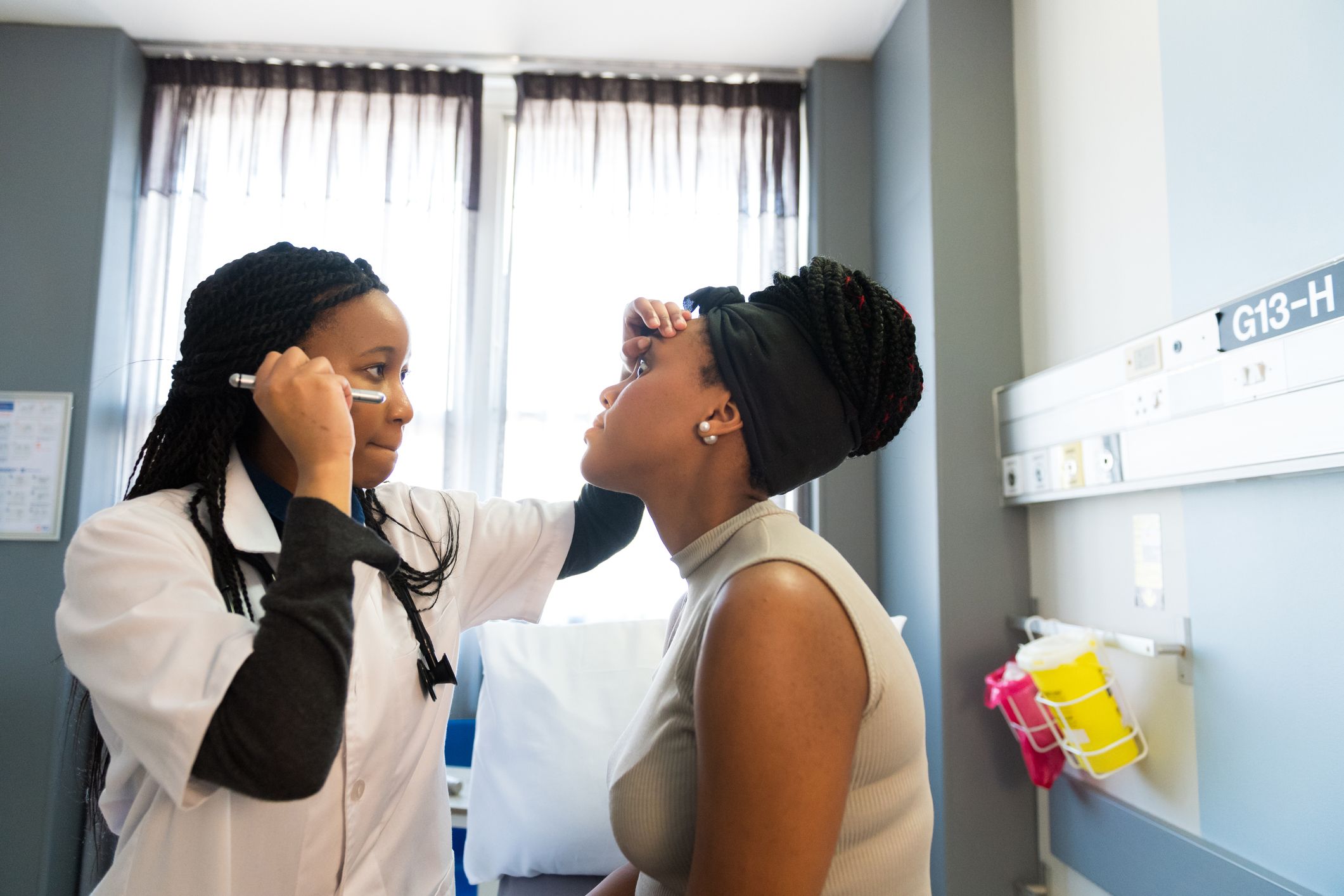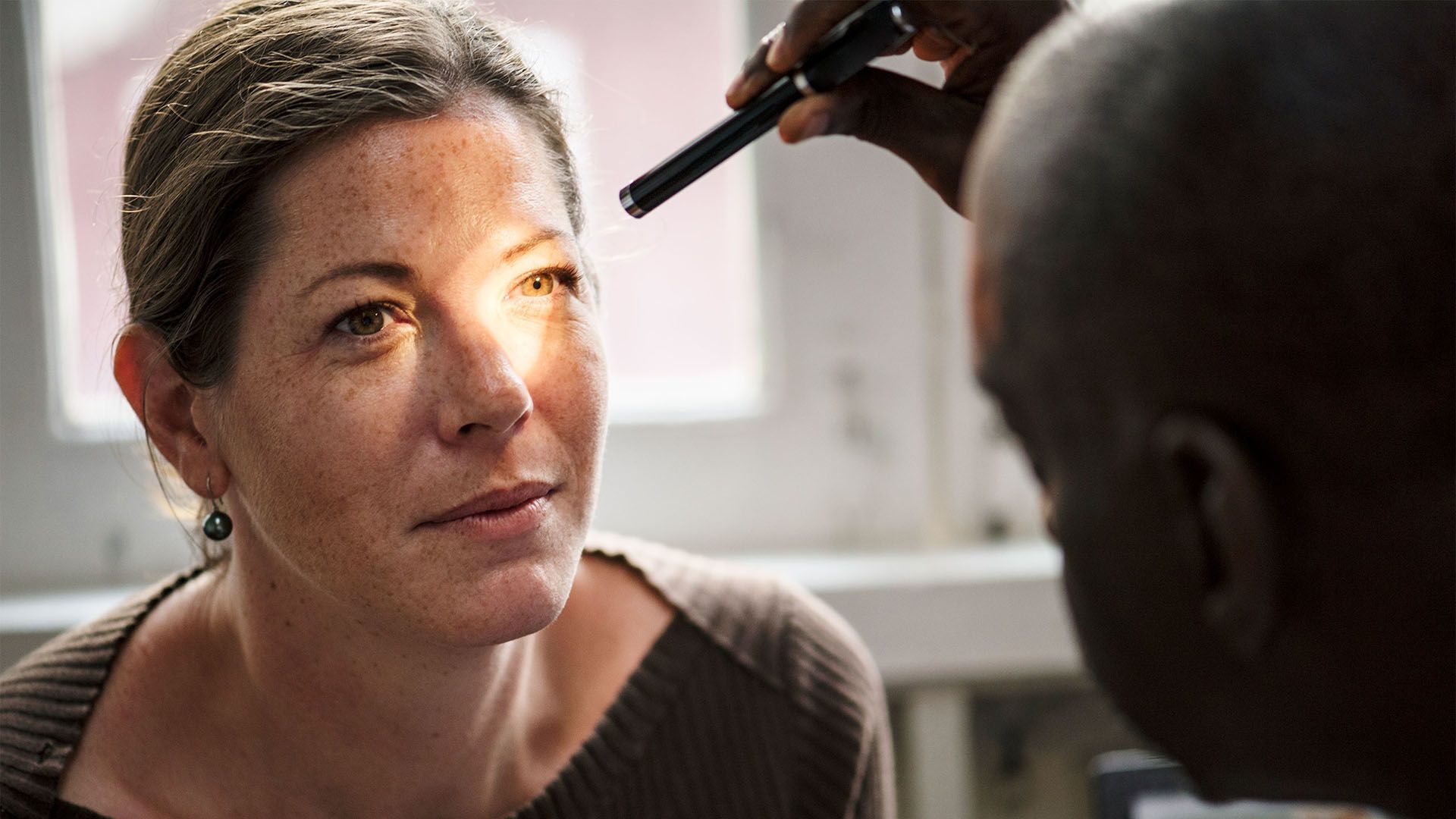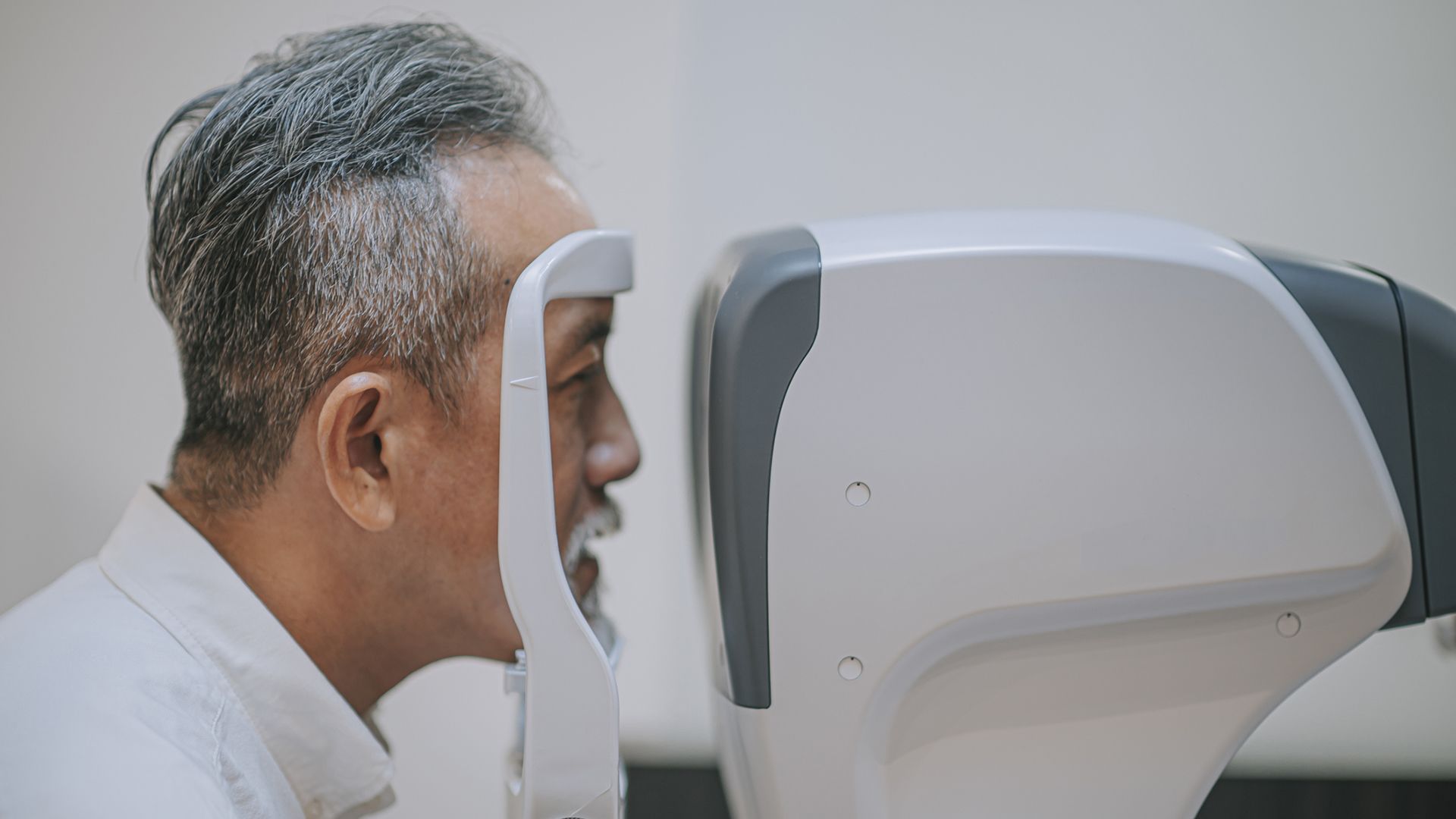If you are living with diabetic macular edema (DME), there are treatments that can help. Therapies like anti-VEGF medications, laser surgery, and corticosteroids can help address the problems that are occurring inside the eye as a result of DME.
Additionally, a treatment plan should also focus on the challenges a person may face when they are living with vision loss caused by DME. This includes finding ways to perform everyday tasks that are made challenging by vision loss and remaining independent. It also includes strategies for coping with the mental and emotional burdens that often occur because of vision loss.
Vision rehabilitation
If you or a loved one has experienced vision loss as a result of diabetes, talk to your healthcare providers about vision rehabilitation. Vision rehabilitation is like a combination of physical therapy and occupational therapy—but for your eyes. Vision rehabilitation involves working with a healthcare provider called a low vision specialist.
A vision rehabilitation program will vary from one person to the next, depending on the type of vision impairment they have experienced and how changes in their vision have impacted their day-to-day life. Some components of a program may include:
- Using assistive devices that help you see better, such as magnifiers.
- Using electronic devices like voice activated speakers, e-readers with large text, or apps with text-to-speech capabilities.
- Making modifications around the home, such as brighter lighting, using objects with high-contrast colors that are easy to see, or reorganizing the items in your kitchen.
- Strategies for performing everyday tasks like preparing food or household chores—and performing these tasks safely.
These are just examples. As mentioned in the paragraphs above, a vision rehabilitation program will be designed around your needs and your goals.
Vision rehabilitation may also help you better manage diabetes. Managing diabetes requires following an eating plan, taking specific doses of medication at the right time, performing regular blood glucose checks, and staying physically active—all of which can be made much more challenging by changes in your vision. Ask about diabetes-specific devices that can help, such as insulin pens or continuous glucose monitors.
DME and mental health
Diabetes on its own is associated with an increased risk of disorders like depression and anxiety. People who are experiencing vision loss are at an increased risk for social isolation and loneliness, and often experience feelings of anxiety or worry. The relationship between diabetes, diabetic eye disease, and mental health can also be cyclical, with negative thoughts, low moods, and distress making it more difficult to follow treatment plans and take care of your health.
If you are living with diabetes, diabetic eye disease, or both, it’s important to pay attention to your moods, emotions, thoughts, and behaviors—and make these a part of your conversations with your healthcare providers. Tell your healthcare providers if there is something that you are struggling with, if you do not feel like yourself, and how your life has changed because of DME. Discussing these topics can help your healthcare providers better understand what you need from your treatment plan.
Remember that you are not alone. There are healthcare providers who specialize in mental health, who can help you find strategies for coping with this aspect of living with diabetes and diabetic eye disease. There are support services that can help you get the treatment that you need. There are support groups where you can connect with others who have similar experiences and understand some of what you are going through.






